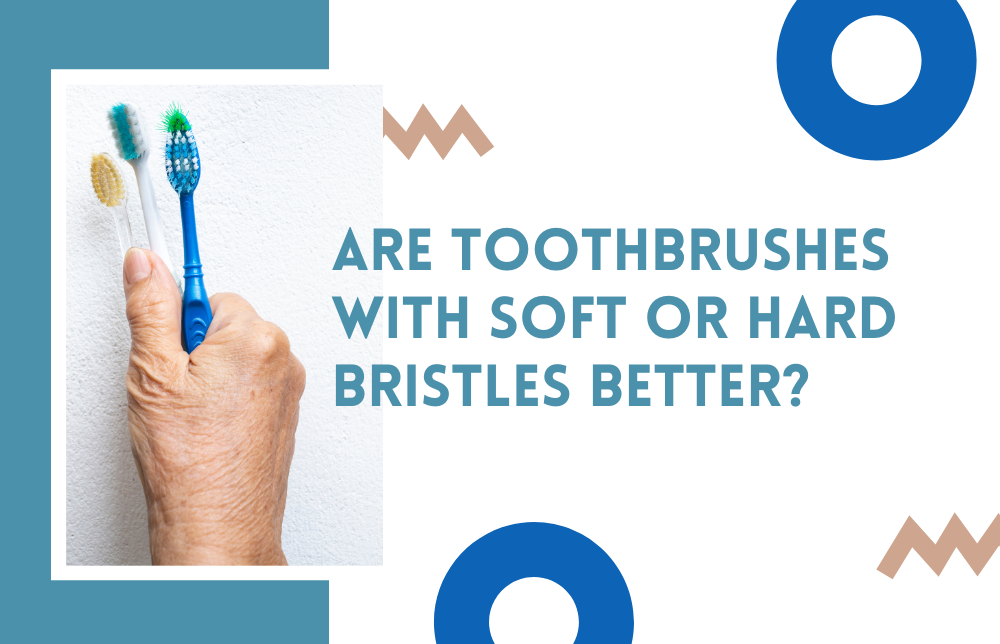
Are Toothbrushes with Soft or Hard Bristles Better?
October 27, 2021
When toothbrushes were invented hundreds of years ago, people had to debate which bristle material would clean their teeth more effectively, animal hair or twigs. Fortunately, our choices have improved since then. We have many toothbrush options, including toothbrushes with soft bristles and hard bristles. Many experts prefer soft bristles over hard-bristled toothbrushes. Here’s why:
Why Soft-Bristle Toothbrushes Are the Preference for Dental Professionals
Using too much pressure when brushing your teeth or brushing too frequently can damage your teeth. With hard bristles, that potential is compounded and can do even more damage to your enamel and gums. Soft bristles are the preference of dental professionals, so patients don’t damage their teeth during their at-home care.
Additionally, dentists recommend soft-bristled toothbrushes with angled or multi-layer bristles to ensure a thorough brushing that won’t harm their patient’s teeth. If you feel like you’re not able to get a thorough cleaning with a soft-bristled toothbrush, here are some options that will help give your toothbrush a little extra oomph:
- Angled bristles
- Multiple layered bristles
- Electric toothbrush
Always choose electric toothbrushes with soft bristles. The rotation and vibration already provide added pressure to the teeth, so firm bristles are not recommended.
There Are Different Types of Soft Bristles Toothbrushes
There are three kinds of soft-bristle toothbrushes: Extra-Soft, Soft and Medium-Soft. If you have sensitive teeth or signs of erosion, dentists will recommend soft-bristle toothbrushes to their patients.
More Pressure Does Not Equal Cleaner Teeth
It’s important to choose the type of toothbrush that will be easy and comfortable to use at least twice a day. But it’s also important to choose a brush that won’t cause unintended damage to your mouth. If you tend to push harder against your teeth, an Extra-Soft Bristled toothbrush might be the best choice. More pressure does not equal cleaner teeth. In fact, it can cause gum loss, which can contribute to tooth sensitivity and could start to damage the enamel and tissues around your teeth.
Of course, your at-home routine is an important part of your dental care. But regular check-ups and cleanings are also essential. Your association and AMBA have Dental Plans that provide coverage on everything from routine dentist visits to procedures like root canals, crowns, and more. Sign up or learn more at www.AMBAdentalvision.com or call 866-979-0497.
RECENT POSTS
An Ambulance Trip Is Stressful: With MASA, the Cost Doesn’t Have to Be
People who require an emergency ambulance trip frequently ask the same question upon receiving the bill: “Why was the
Read More
AMBA’s Essential Insights in Dental Health: Understanding Cavities
Have you ever experienced pain or noticed persistent sensitivity in your teeth? You might have a cavity. Cavities are common,
Read More
Keep “Looking” Your Best: The Unique Eye Health Challenges for Women Over 55
March is Women’s History Month, a time to celebrate women's contributions to American history and society. It’s
Read More

Leaving Your Home To A Loved One
If you’re like many people, your home represents more than just financial value. As the saying goes, "Home is where the
Read More

